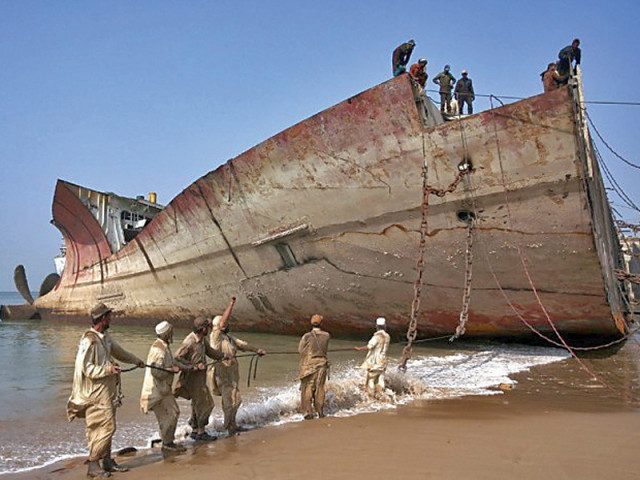Steel industry fears going bust due to tariff hikes
Asks govt to take stakeholders into confidence before taking decisions.

PSMA wants that the cost difference between ship-plates and steel billets should not exceed Rs1,200 per ton. PHOTO: FILE
In a press release, the PSMA spokesperson said that Pakistan’s formal steel manufacturing sector is already in a very dismal position due to unfair competition by the local ship breaking industry, which only pays sales tax on 70.5% of the total weight of the scrap ships.
The decision of further increasing the power tariff will make the steel manufacturing sector uncompetitive leaving no option for the domestic industry but to close down its businesses.
PSMA demands that the cost difference between ship-plates, produced by the ship breaking industry, and steel billets, produced by the steel melters, should not exceed Rs1,200 per ton. Currently, the difference in costs hovers around Rs10,000 per ton making the local steel manufacturers completely vulnerable and subject to unfair competition at the hand of the ship breaking industry.
This practice of not charging sales tax on 29.5% of a scrap ship is going on for almost five years now, and the country has lost billions of rupees due to FBR’s negligence, said PSM spokesperson.
The spokesperson asked the FBR to impose additional taxes on the local ship breaking industry not only to offset the increase in power cost, but also to provide a level playing field to the steel manufacturing industry.
Pakistani steel sector is already facing fierce competition from Chinese steel exporters where the power tariff averages $68 per megawatt hour (MWh) compared to Pakistan where power cost is $115 per MW.
He urged the government to take all the stakeholders into confidence before taking big economic decisions in order to ensure that local industries are able to compete internationally and continue to play their role in economic development of Pakistan.
Published in The Express Tribune, July 27th, 2013.
Like Business on Facebook, follow @TribuneBiz on Twitter to stay informed and join in the conversation.



















COMMENTS
Comments are moderated and generally will be posted if they are on-topic and not abusive.
For more information, please see our Comments FAQ